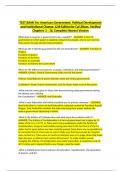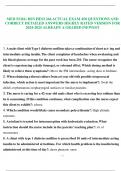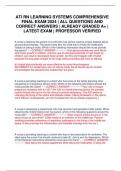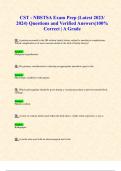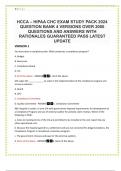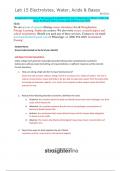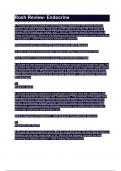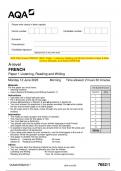Exam (elaborations)
American Government: Political Development and Institutional Change 12th Edition by Cal Jillson, Verified Chapters 1 - 16, Complete Newest Version
- Course
- Institution
- Book
American Government: Political Development and Institutional Change 12th Edition by Cal Jillson, Verified Chapters 1 - 16, Complete Newest Version
[Show more]
